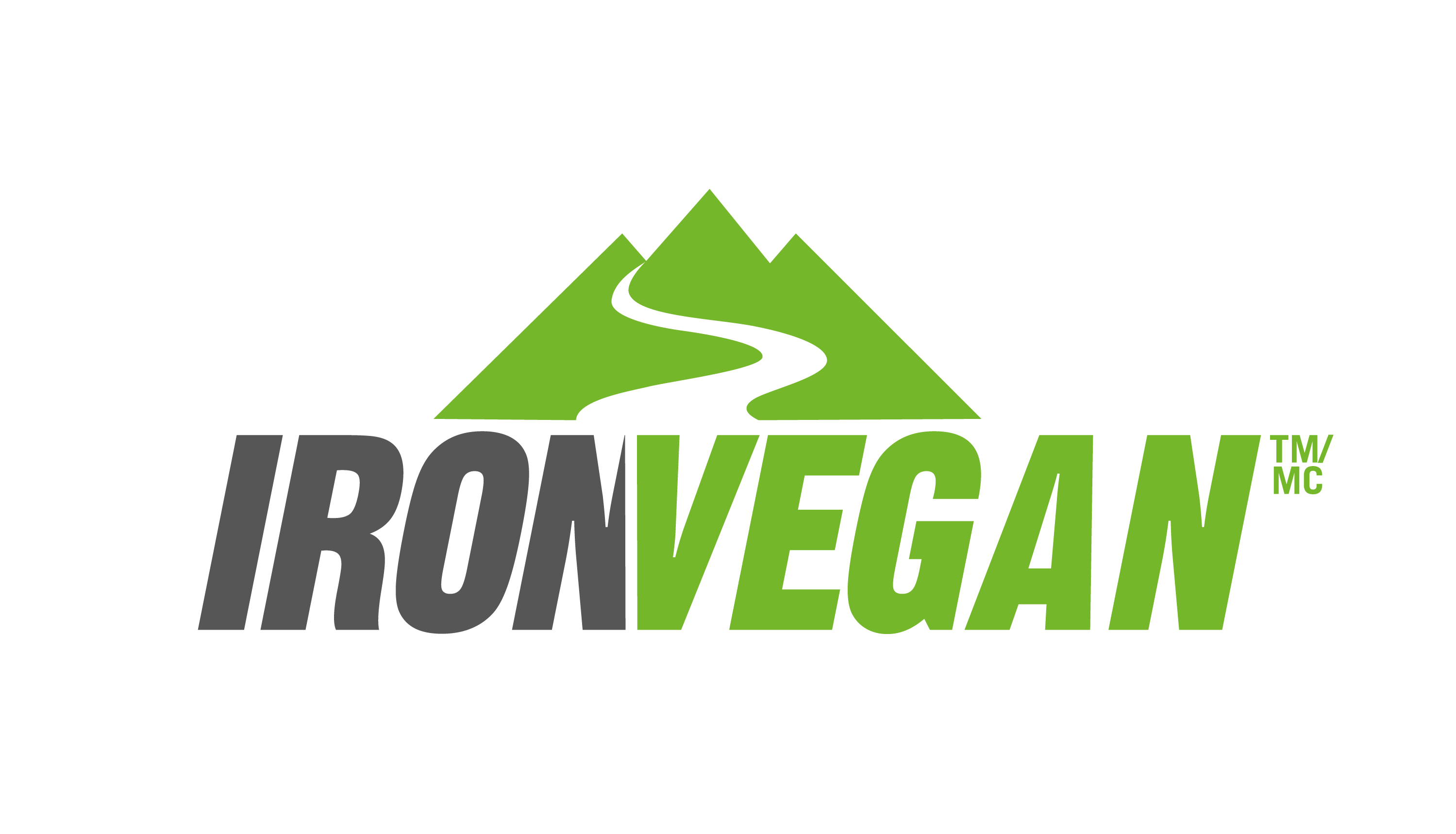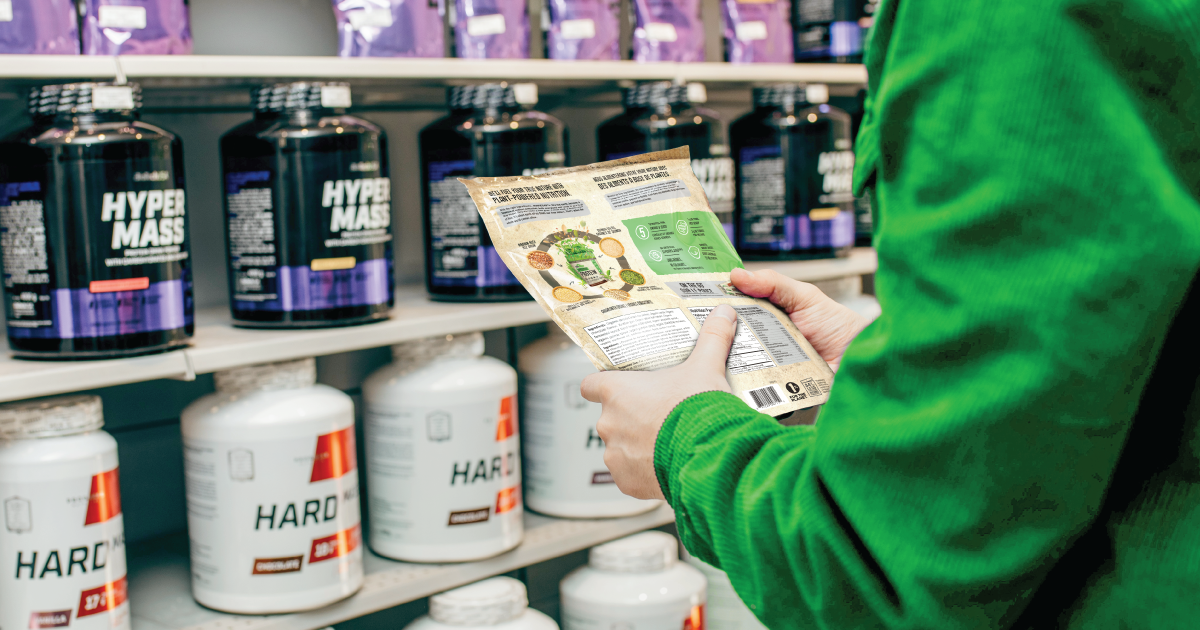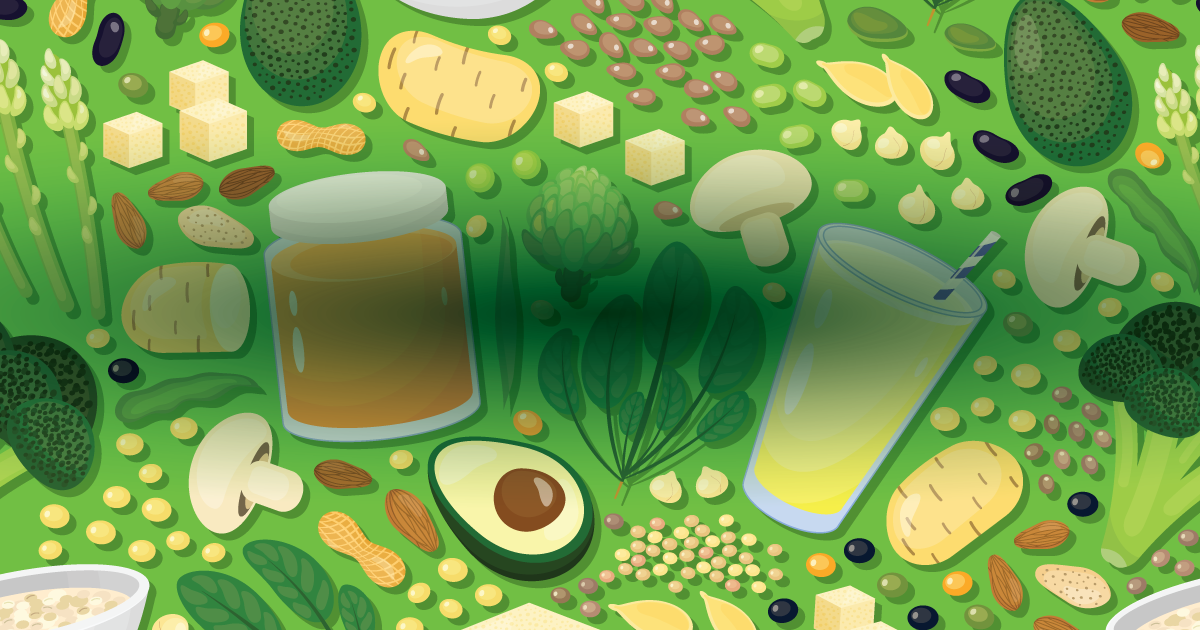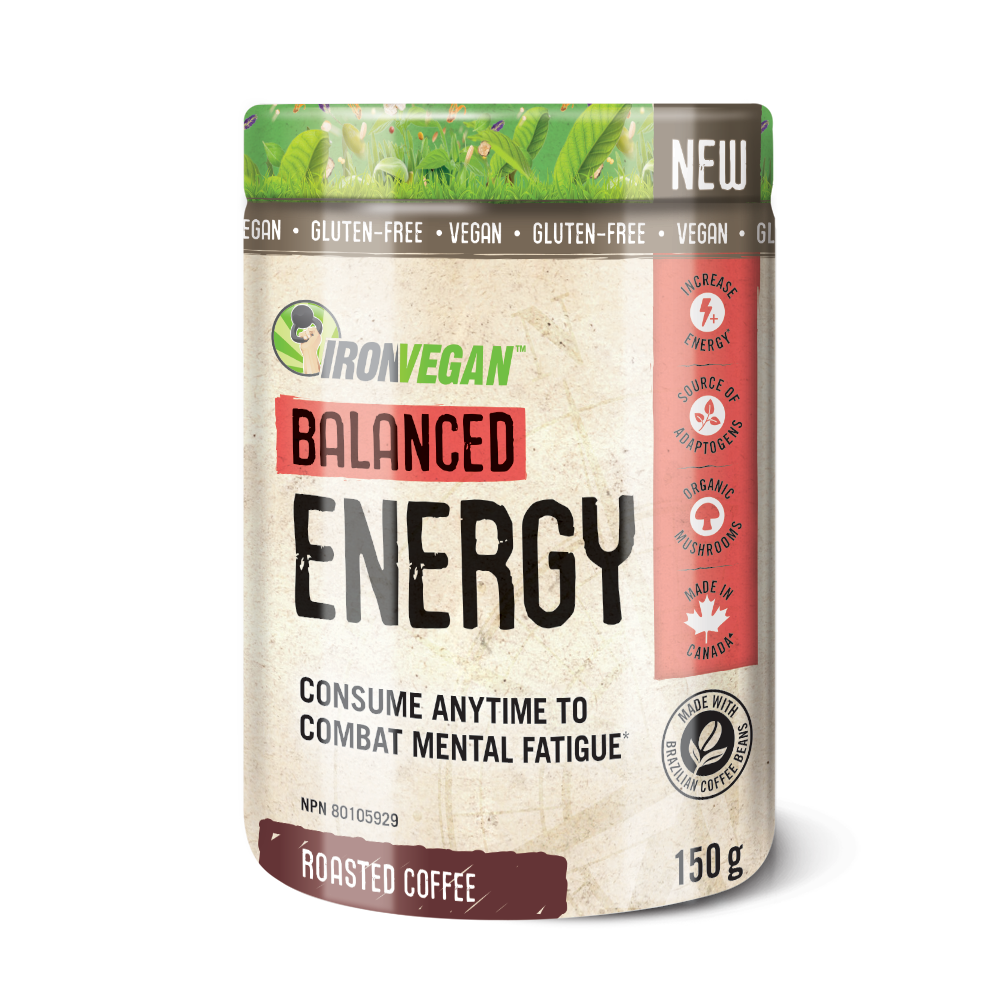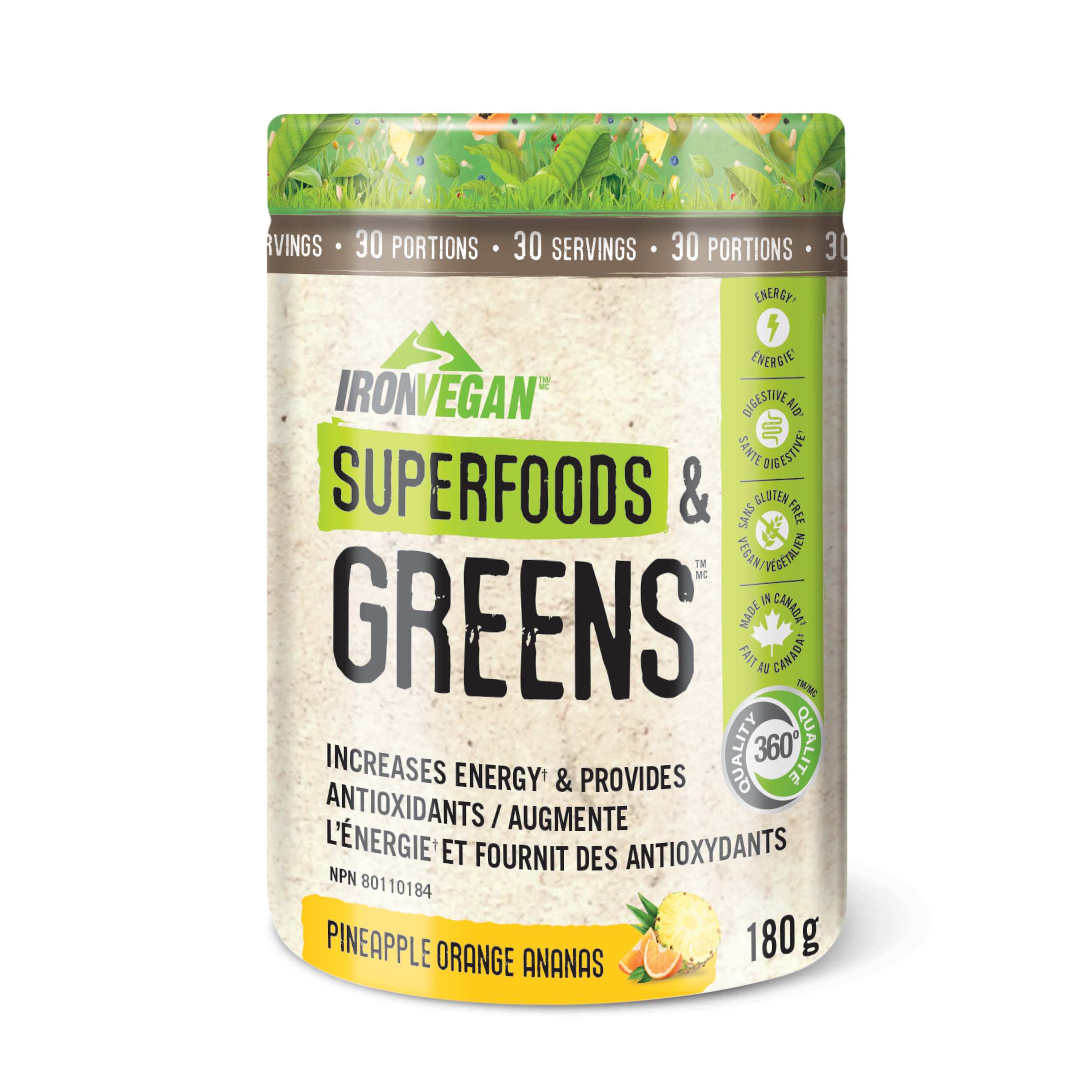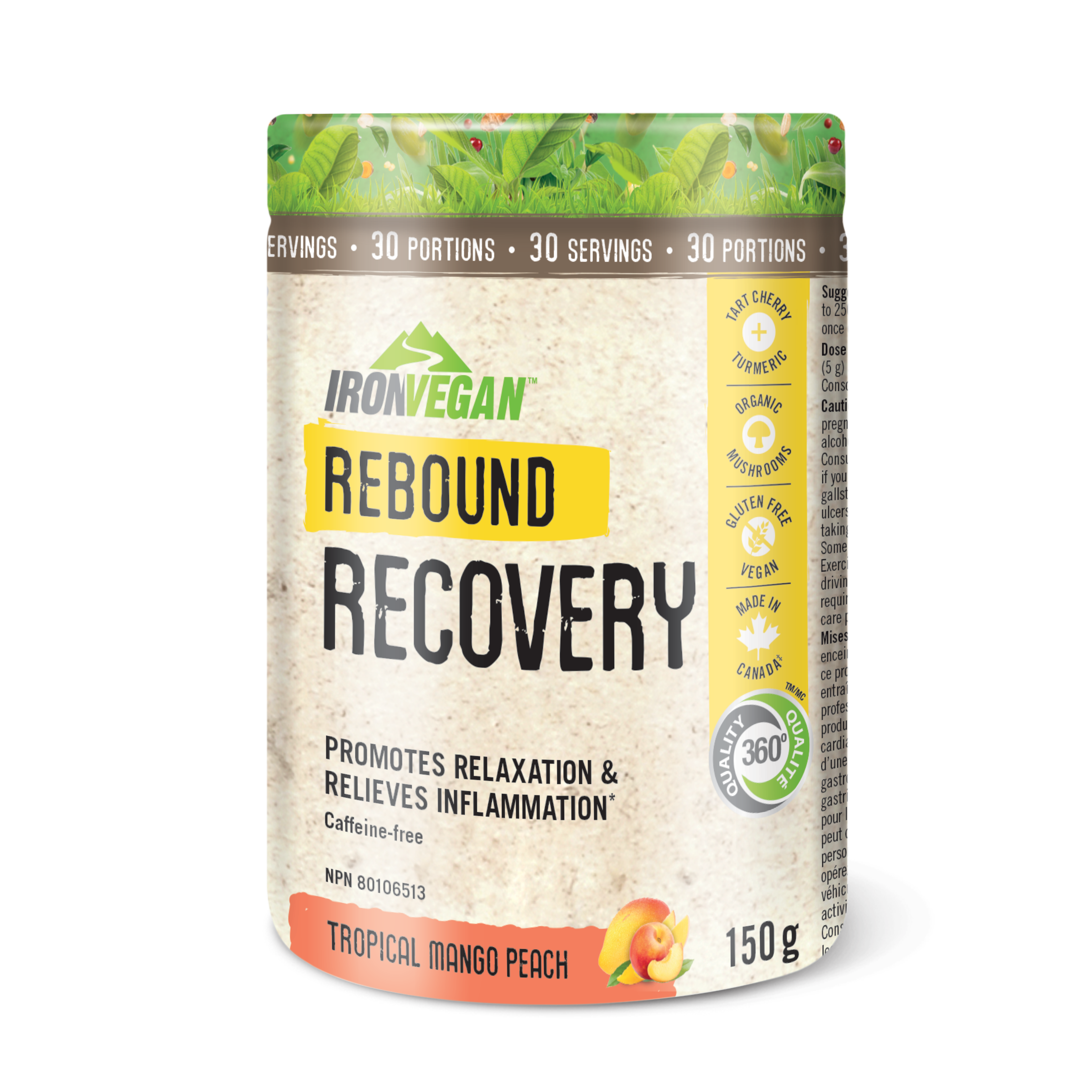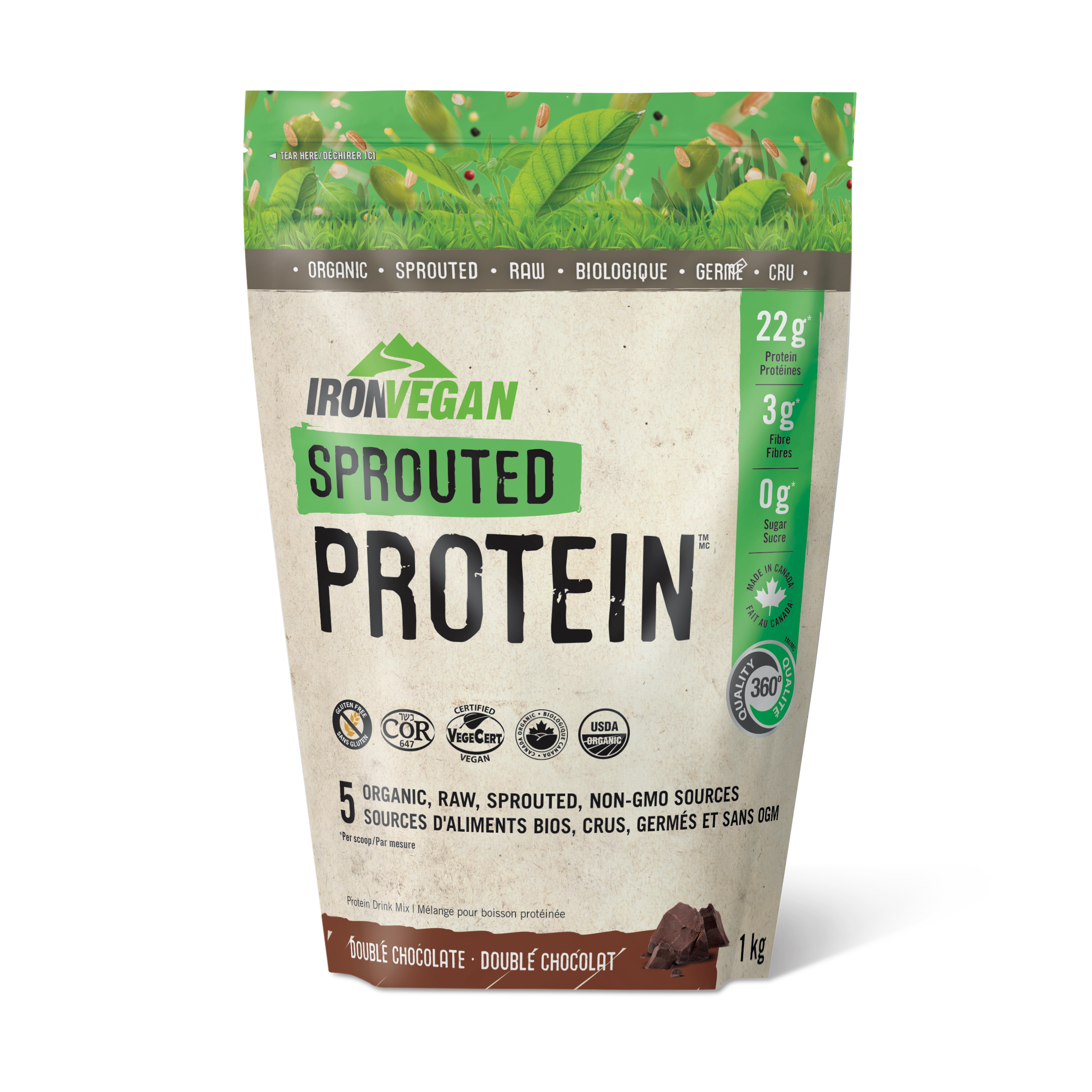Written by Iron Vegan
Let’s debunk some common myths about plant-based eating. So let’s get right into it.
If you eat a wide range of real, natural, whole, plant foods:
You WILL get enough protein!
This is, by far, the most common myth. If you are mindful about eating a variety of natural foods containing all macronutrients (protein, carbs, and fats) your body will meet, and in many cases exceed, your protein requirements for the day. There is an array of plant foods that are rich sources of protein, including tofu, tempeh, lentils, beans, nuts, seeds, whole grains, and protein supplements.
You WILL have energy!
In some cases, even more energy. Plant foods contain powerhouses of nutrients that will fuel and energize you! Just think of the energy transfer when you eat a fresh juicy piece of fruit or a colourful fully loaded salad – it lifts you and leaves you feeling full of life. Eating a diet rich in fresh fruits, vegetables, legumes, nuts and seeds, and whole grains is easier for your entire system, specifically the digestive system. Less energy needed for digestion means way more energy for everything else you want to do in life!
Your food WILL be delicious and FULL of flavour!
Plant-based meals are vibrant with colour and bursting with flavour. You’ll likely find yourself eating a wider variety of foods, including new fruits and vegetables (think of eating all the colours of the rainbow!), or experimenting with different oils and seeds. From fresh herbs and spices to sauces and dressings, you can create incredibly tasty meals in no time.
Your meals need NOT be complicated!
In fact, they can be very simple. We agree with this quote by Julia Child - “You don't have to cook fancy or complicated masterpieces - just good food from fresh ingredients.”
Healthy plant-based eating habits are usually formed when meals are not complicated, and meal prep time is manageable. You don’t always need to follow a recipe; it could be as simple as chia pudding with fruit and nuts. To start, find a few meals to easily throw together to help you move towards a healthy, sustainable lifestyle.
But what about plant-based health supplements? Let’s debunk a few more myths here!
Vegan protein supplements taste bad
The industry has come a long way in taste and texture, and the more “progressive” brands know the importance of taste and natural ingredients. Gone are the days of gritty bland plant proteins! Also, they are extremely versatile. Flavours such as vanilla, chocolate and unflavoured can also be used in recipes for more than just smoothies – see our recipe section!
Plant foods and vegan proteins are incomplete (i.e., they do not contain the full spectrum of essential amino acids)
Individual plant foods do not boast the same full amino acid profile as many animal-based foods. However, we don’t eat these foods in isolation. When eating a wide variety of plant-based foods, we can easily get enough amino acids to reach even quite high daily protein goals. Our bodies know what to do! We know that a variety of protein sources consumed in a 24-hour period can be combined to complete each other. When it comes to vegan protein supplements, smart manufacturers know how to navigate this with specific combinations of many plant-based proteins rendering them complete. 😉
Plant foods and vegan protein shakes are hard to digest
It is true that SOME plant-based proteins can be hard on the gut for some people; however, fermenting and sprouting the plant proteins makes them easier to digest and much more nutrient enriched than before. Sprouting breaks down the anti-nutrients (like phytic acid and gluten) to make the seeds and grains easier to digest, and increases vitamins, minerals (zinc, iron, and calcium) and fibre. It also significantly increases the protein availability. Fermentation takes it one step further: it breaks down the anti-nutrients even more. Fermentation is a natural metabolic process using probiotic bacteria and yeast to help preserve food by also improving nutritional qualities and decreasing anti-nutrient content. It also improves digestion of proteins and cabs, therefore reduces gas producing carbohydrates (you may not produce as much gas!). Here’s what to look for in a plant-based protein (especially if you have digestive concerns): ensure that it’s sprouted, bacterially fermented, tastes great, gluten free and non-GMO.
Plant proteins don’t provide the performance results in muscle growth and size
Consumption of protein-rich plant foods can absolutely build muscle and lead to improved performance. When you track your progress, have a consistent workout regimen, keep track of your macronutrient intake, and focus on whole foods, you can build muscle and stay healthy while eating plant based. It’s important to remember that muscle growth is stimulated by strength training, not just protein intake - so hit the weights and eat plenty of protein-rich plant foods!
References:
- Gorissen, S.H.M., Crombag, J.J.R., Senden, J.M.G. et al. Protein content and amino acid composition of commercially available plant-based protein isolates. Amino Acids 50, 1685–1695 (2018). https://doi.org/10.1007/s00726-018-2640-5
- Banaszek, A., Townsend, J. R., Bender, D., Vantrease, W. C., Marshall, A. C., & Johnson, K. D. (2019). The Effects of Whey vs. Pea Protein on Physical Adaptations Following 8-Weeks of High-Intensity Functional Training (HIFT): A Pilot Study. Sports (Basel, Switzerland), 7(1), 12. https://doi.org/10.3390/sports7010012
- Gupta, R. K., Gangoliya, S. S., & Singh, N. K. (2015). Reduction of phytic acid and enhancement of bioavailable micronutrients in food grains. Journal of food science and technology, 52(2), 676–684. https://doi.org/10.1007/s13197-013-0978-y
- Influences on the Absorption, Retention, & Availability of Minerals in the Body. (2014, August 20). Retrieved from https://study.com/academy/lesson/influences-on-the-absorption-retention-availability-of-minerals-in-the-body.html.
- Antinutritional properties of plant lectins, Ilka MVasconcelosJosé Tadeu AOliveira https://doi.org/10.1016/j.toxicon.2004.05.005
- K. Chavan, S. S. Kadam & Larry R. Beuchat (1989) Nutritional improvement of cereals by sprouting, Critical Reviews in Food Science and Nutrition, 28:5, 401-437, DOI: 10.1080/10408398909527508
- Junzhou Ding and Hao Feng, Controlled germination for enhancing the nutritional value of sprouted grains, Sprouted Grains, 10.1016/B978-0-12-811525-1.00005-1, (91-112), (2019).
- Nkhata, S. G., Ayua, E., Kamau, E. H., & Shingiro, J. B. (2018). Fermentation and germination improve nutritional value of cereals and legumes through activation of endogenous enzymes. Food science & nutrition, 6(8), 2446–2458. https://doi.org/10.1002/fsn3.846
- Source: Food and Agricultural Organization of the United Nations, FERMENTED CEREALS. A GLOBAL PERSPECTIVE http://www.fao.org/docrep/x2184e/x2184e06.htm
